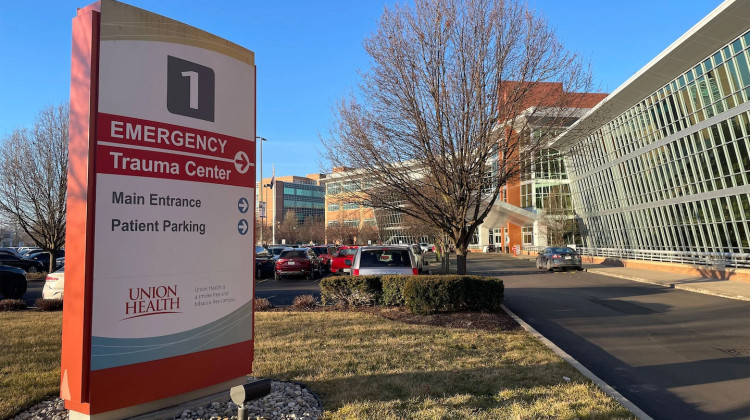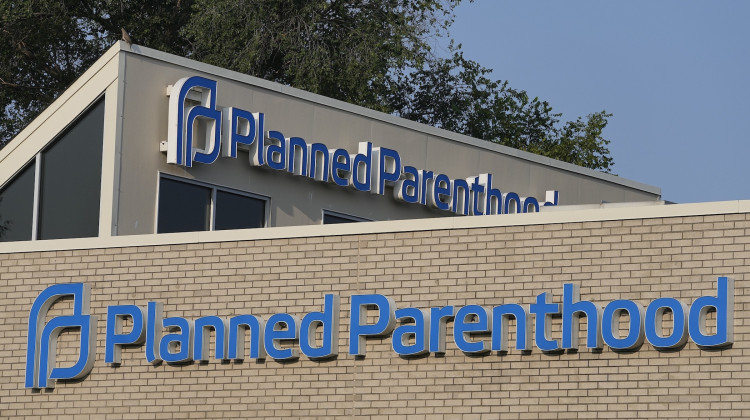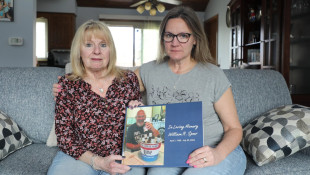
Monkeypox virus particles obtained from a clinical sample associated with the 2003 prairie dog outbreak.
Cynthia S. Goldsmith, Russell Regnery/CDCMarion County Health authorities reported the first two probable cases of monkeypox on Wednesday, July 13.
The U.S. Centers for Disease Control and Prevention confirmed ten cases of monkeypox in Indiana so far. The first case was reported on June 18. Until this week, there were no known cases in Marion County.
In a press release, the Marion County Health Department said the risk of transmission among the general U.S. population is still very low.
“Even though the risk of transmission is very low here, we all need to be aware of the facts about this virus, including risk factors and how it’s spread,” said Dr. Virginia Caine, director and chief medical officer of the Marion County Public Health Department. “We are still learning more about monkeypox and encourage anyone with concerns about their health to contact a primary care physician or health care provider.”
Globally, there have been more than 1,600 cases of monkeypox in 35 countries and territories, and the numbers are rising. The West African monkeypox virus –– which is believed to be the one circulating globally now –– has a 1 percent fatality rate and potentially higher rates in people with weakened immune systems, according to the CDC. No deaths have been reported globally.
Monkeypox symptoms include fever, headache, chills, muscle aches and exhaustion, usually before a rash develops.
The virus can spread through:
- Direct contact, including sexual contact, with the rash or sores of an infected person (the most common way the virus is spreading)
- Contact with objects like towels and bedsheets of an infected person.
- Contact with respiratory secretions during prolonged, face-to-face interaction, or during intimate physical contact.
- During pregnancy, the virus can spread to a fetus through the placenta.
The CDC recommends that anyone with a rash that looks like monkeypox should speak with their health care provider, even if they don’t think they came in contact with an infected person. Anyone with active monkeypox symptoms should isolate at home in a separate room from others.
The agency also recommends people at higher risk of infection to consider vaccination after consulting with their health care provider.
According to the CDC, there are two FDA approved vaccines available to prevent monkeypox –– JYNNEOS (also known as Imvamune or Imvanex) and ACAM2000. Data is not yet available on the effectiveness of these vaccines in the current outbreak.
There is a shortage in JYNNEOS vaccine doses, but according to the CDC website, more doses are expected within the coming weeks and months. As of July 1, 474 doses of the JYNNEOS vaccine were shipped to Indiana, according to the U.S. Department of Health and Human Services.
The ACAM2000 vaccine should not be used in people who are pregnant, have weakened immune systems or have skin conditions like atopic dermatitis or eczema.
According to the Indiana Department of Health’s monkeypox outbreak response, “Indiana has gathered a multi-disciplinary advisory group of health care clinicians, pharmacists, public health academics, minority health stakeholders, ethicists and community advocates to develop Indiana’s tiered allocation approach of this limited vaccine.”
Those with questions about qualifications for the monkeypox vaccine should contact their health care provider or local health department.
In 2003, the Midwest saw a monkeypox outbreak. The virus came through a shipment of animals from Ghana to Illinois. It spread to pet dogs, which then came in touch with humans. At that time, 47 people caught the virus and all appear to have recovered without spreading the virus to anyone else.
This story comes from a reporting collaboration that includes the Indianapolis Recorder and Side Effects Public Media, a public health news initiative based at WFYI. Contact Farah at fyousry@wfyi.org. Follow on Twitter: @Farah_Yousrym.
 DONATE
DONATE





 View More Articles
View More Articles




 Support WFYI. We can't do it without you.
Support WFYI. We can't do it without you.